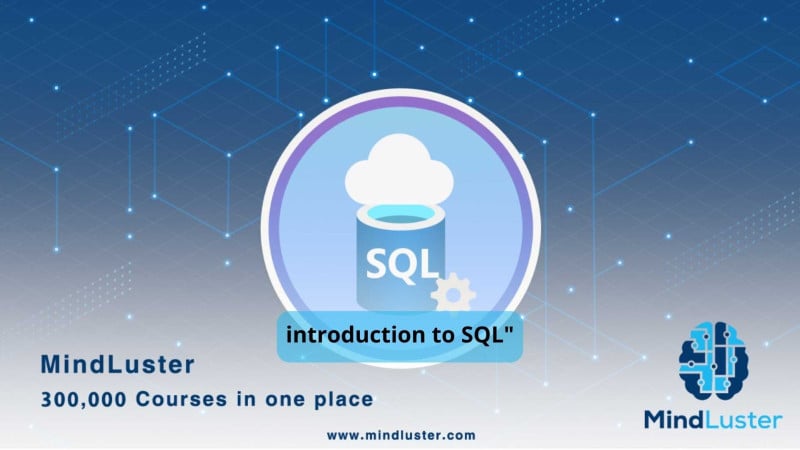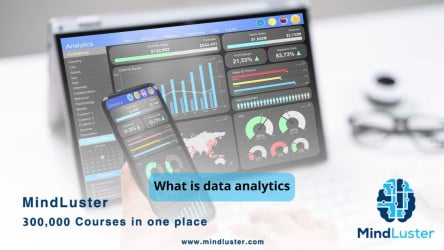SQL, also known as (Structured Query Language), shines and glows as a standard language for storing, manipulating, and retrieving data in databases. With its intuitive syntax and powerful capabilities that allow users to handle large datasets, the language has become indispensable for developers, data analysts, and administrators. It provides a robust framework for efficiently querying and maintaining relational databases.
Keep reading to learn everything you need about SQL and carve your career in database and data analysis.
SQL basics for beginners
Before beginning with SQL, you should have some knowledge of the following terms:
Table
The table is a fundamental database object that organizes data into columns and rows, allowing for efficient data storage, retrieval, and manipulation. Databases that use tables can maintain order and provide a clear, accessible format for managing information.
Records and fields
In SQL basics, rows are described as records, while fields represent the columns that show the records' categories. To be more precise, a table of book information contains a row for each book and a column for each detail, such as title, author, and genre.
SQL data types
The basic requirements to create a column are names and data types. The three data types supported by SQL are:
- String data type
- Numeric data type
- Date data type
SQL clauses
SQL is considered a case-insensitive programming language as it treats uppercase and lowercase letters as equivalent. For example, the commands SELECT, select, and SeLeCt would all be decrypted similarly. This feature allows for greater flexibility for the programmer and reduces the possibility of errors related to letter casing in commands and identifiers. The principal clauses in SQL programming language are as follows:
- Select: It is the most crucial clause in SQL as it helps retrieve data from the table.
- From: Its role is to retrieve data from a specific table in a database.
- Where: The where clause's role is to retrieve specific data records in a table.
After learning about the SQL data types and SQL clauses, let’s turn our undivided attention to the next point in SQL basics: the categories.
SQL categories
The SQL language is essential for interacting with databases and can be divided into several key categories. Each one of those categories focuses on different aspects of database management and manipulation. Primary categories of SQL include:
- Data Definition Language (DDL): The DDL commands define and manage the structure of the database and its objects.
- Create: used to create new database objects such as tables, indexes, and views. For example, CREATE TABLE Students (ID INT, Name VARCHAR(100), Age INT);
- Alter: it is used in modifying the existing database projects, for example, ALTER TABLE Students ADD COLUMN Grade CHAR(1);
- Drop: it is used to delete existing database projects. Example, ` DROP TABLE Students;`
- Truncate: used to remove all records from a table but not the table itself. Example`TRUNCATE TABLE Students;`
- Data Manipulation Language (DML): These are commands used for managing data within the database objects. DML commands include
- Select: A command used to retrieve data from the database. For example, `SELECT * FROM Students;`
- Insert: is a command to add new records to a table. For example, `INSERT INTO Students (ID, Name, Age) VALUES (1, 'Alice,' 20);.`
Learn SQL for Data Analysis
As mentioned before, SQL is an important programming language for Data Analysis. In this section, we will review some of its most important uses.
Why Is SQL Important For Data Analysis?
1. Data Retrieval
Allowing the data analyst to access data in databases efficiently, SQL offers an organized method of querying and retrieving data based on multiple conditions. These conditions include filtering by certain criteria, sorting the results, and selecting specific columns.
2. Data Manipulation
Offering advanced data processing tools, SQL helps analysts compute and manipulate data, integrate datasets, and create new tables or views. SQL supports various data manipulation activities, including aggregation, table joining, and advanced calculations. Because of its adaptability, analysts can mold and arrange data for analysis.
3. Data Integration
The SQL tool plays a crucial role in integrating data from various sources. This role helps analysts when they frequently need to merge data from multiple databases or tables. The tool allows analysts to combine relevant data based on standard fields, which enables aggregation and makes a wide range of datasets easier to analyze.
4. Data Aggregation and Summarization
SQL can help analysts compute complex metrics, including counts, sums, and averages by providing various data aggregation and summarization methods. These functions can give analysts a great way to gain insights from data and develop summaries or KPIs representing a short overview of the analyzed data.
5. Data Cleaning and Transformation
Using SQL, data analysts can perform many data cleaning chores, including deleting duplicates, dealing with missing values, and standardizing data formats. SQL is sometimes used to execute data transformations and ensure data integrity and consistency.
Check out this Free SQL for data analysis course
Free resources for learning SQL
SQL is a widespread database with a vast community, making it an accessible and valuable skill for everyone interested in data management and analysis. As a beginner learning SQL, there are free resources to help you understand it effectively, including:
- W3Schools offers a comprehensive SQL tutorial covering basic queries and advanced topics like joins and subqueries. The tutorial has interactive examples and exercises that make it easy to practice while learning.
- Codecademy
- Khan Academy
- SQLZoo
- Youtube
- Mindluster
Additionally, joining communities and forums such as Stack Overflow and Reddit’s r/SQL will be incredibly beneficial. These platforms allow you to ask questions, interact with other professionals, share knowledge, and enjoy many other benefits.
By leveraging these free resources, you can build a strong foundation in SQL and enhance your data management skills without spending a dime.
Enroll in our free courses today and unlock your potential in SQL. Mindluster has a vast library includes more than 300,000 online courses in different fields.









